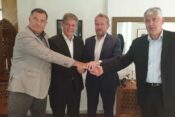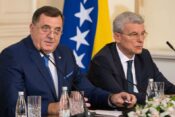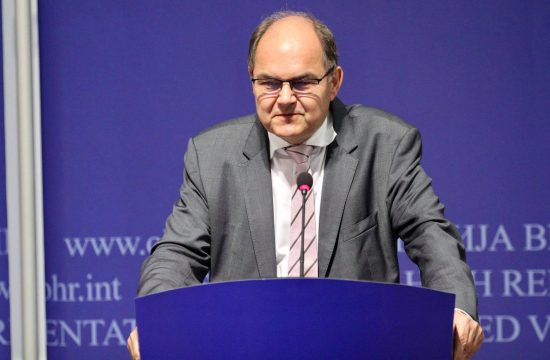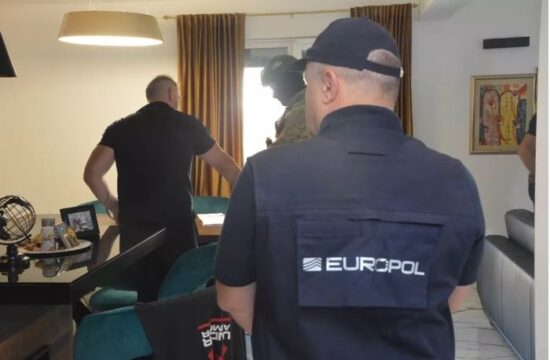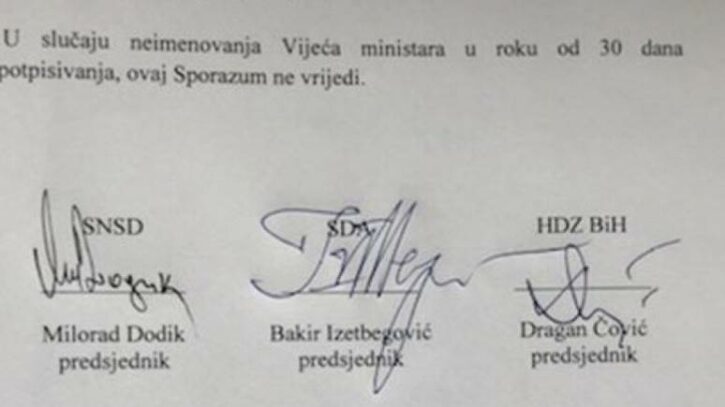
An agreement reached on Monday by Bosnia’s political leaders on how to form the government may already be in jeopardy as the main reason it took them more than nine months to negotiate it has remained unresolved because they have different interpretations of what they have signed.
Bosnia’s path toward NATO membership is at the core of the political bickering that has been ongoing since the elections in October.
Although they initially supported Bosnia’s path toward the alliance, Bosnian Serbs have changed their minds a few years ago and now refuse to let the country make any further steps toward membership, while Bosniaks insist on it.
The swords are being crossed now over the next step on that path – sending the country’s Annual National Programme (ANP) to NATO.
Monday’s agreement addresses the issue in one of its 12 principles but with such vague wording that nobody can say for sure what it means.
The Agreement was signed by the leaders of the three strongest national parties that won the election – Bosniak Bakir Izetbegovic, from the Party for Democratic Action (SDA), Serb Milorad Dodik, from the Alliance of Independent Social Democrats (SNSD) and Croat Dragan Covic, from the Croat Democratic Union (HDZ).
Since the results of the election were announced and the new three-member presidency was formed, its Bosniak and Croat members keep refusing to greenlight the prime minister proposed by their Bosnian Serb colleague because the candidate is opposed to the country's membership in the alliance.
Monday’s agreement says that the government will be formed within 30 days as long as Bosnia remains committed to “advancing the relationship with NATO without predicting future decisions in relation to membership of Bosnia and Herzegovina.”
Politicians, as well as analysts, remain puzzled by this formulation.
Foreign Minister Igor Crnadak said that Bosnia’s diplomatic offices in NATO countries need to know whether it means Bosnia will send the ANP or not so they can prepare accordingly.
SNSD lawmaker and member of the Parliament's Defence and Security Commission, Dusanka Majkic, said on Thursday that Bosnia will not submit the document because it is not mentioned anywhere in the Agreement.
“It doesn't say anywhere that the ANP will be submitted, meaning it won't be done,” she said.
Her party boss, Milorad Dodik, said the ANP was not discussed at all during talks that preceded the signing of the 12 principles.
The Croat member of the Presidency, Zeljko Komsic, remains determined not to vote for a candidate who will not pursue Bosnia's NATO path, he told the Srna news agency on Thursday.
For Izetbegovic, the answer is “clear” and that the country is working on activating the NATO Membership Action Plan.
“We said that the plans will be sent to Brussels. That is the framework,” he said.
He argued that what is needed are reduced plans which would be the result of a compromise between all sides in the country, “most of all for the Presidency and for the NATO.”
He said he did not want to elaborate because “it might cause reactions from the other side.”
“We could complicate things and lose this chance,” he said.
All of this seems to be taking the situation back to square one.
The Bosniak leader added that he spoke to US Ambassador Eric Nelson about the agreement.
“They are a little bit worried because the part about the ANP is not defined,” he said.
As for NATO, its headquarters in Bosnia told N1 in a statement that the alliance supports “the efforts for forming the government.”
“We believe that the submission of the first ANP would benefit Bosnia and Herzegovina and we look forward to continuing our cooperation,” it said.
However, Nasa Stranka (Our Party) lawmaker in the Federation (FBiH), Mirsad Camdzic, stold N1 on Thursday that the Agreement has no meaning.
“The general public is very confused by this Agreement,” he said, arguing that “if the all-knowing US Embassy is asking for an explanation … then you can understand how complicated that is.”
He said that it was clear the agreement was made under pressure of the EU and that “it issad that 10 months after the election we have something which guarantees absolutely nothing.”

